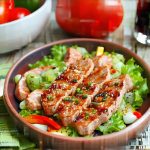Binge eating episodes and digestive overload are experiences many individuals grapple with, often carrying significant physical and emotional weight. These events aren’t simply about food; they’re deeply intertwined with complex psychological factors, stress responses, and – crucially – the health of our gut microbiome. After a period of excessive consumption, the digestive system is understandably overwhelmed, leading to discomfort, bloating, shame, and anxiety which can perpetuate the cycle. While addressing the underlying emotional or psychological drivers of binge eating is paramount, supporting the body’s natural recovery processes through dietary choices and targeted supplementation – specifically probiotics – can play a valuable role in mitigating the physical fallout and potentially interrupting negative patterns.
The aftermath of overeating isn’t just about feeling physically full; it’s a physiological stressor that disrupts the delicate balance within our gut. The sheer volume of food, particularly if high in sugar or fat, alters the composition and function of the microbiome – the trillions of bacteria residing in our digestive tract. This disruption can exacerbate symptoms like bloating, gas, and altered bowel movements, creating further distress and reinforcing feelings of guilt and helplessness. Probiotics, live microorganisms that confer health benefits when consumed, offer a potential pathway to restoring some equilibrium and promoting healthier digestion post-episode. However, it’s vital to understand how they work in this context, and the nuances involved in choosing and utilizing them effectively. Understanding digestive enzymes differ can also be helpful when considering supplementation.
The Gut Microbiome & Binge Eating: A Complex Relationship
The gut microbiome isn’t merely a passive bystander; it actively influences numerous aspects of our health, including digestion, immunity, and even mental wellbeing. A healthy, diverse microbiome is capable of efficiently processing food, absorbing nutrients, and regulating inflammation. Conversely, an imbalanced microbiome – often referred to as dysbiosis – can contribute to digestive distress, weakened immunity, and potentially exacerbate emotional eating behaviors. Binge eating episodes frequently introduce a sudden influx of highly processed foods which can negatively impact the microbiome’s composition, favoring less beneficial bacteria and reducing overall diversity.
This imbalance isn’t just a consequence of the overeating; it can also contribute to the cycle itself. Certain gut bacteria produce neurotransmitters that influence mood and appetite regulation. Dysbiosis may disrupt these processes, potentially increasing cravings for highly palatable foods – those often involved in binge eating episodes – and decreasing feelings of satiety. Moreover, inflammation stemming from a compromised gut barrier (often worsened by dietary overload) can affect brain function, contributing to emotional dysregulation and impulsive behaviors. Therefore, addressing the microbiome is not simply about alleviating digestive symptoms; it’s about supporting overall wellbeing and potentially breaking the cycle of binge eating. For those with underlying conditions, nutrition support can be crucial to manage symptoms.
The interplay between the gut microbiome and mental health is bidirectional. Stress and anxiety – common triggers for binge eating – can also negatively impact the gut microbiome, creating a vicious cycle. Probiotics may offer some benefit in this regard by influencing the gut-brain axis – the complex communication network linking the digestive tract and the brain. While research is still evolving, certain probiotic strains have shown promise in reducing stress hormones and improving mood, potentially offering an adjunct approach to managing emotional eating. Restoring digestive balance is also key during periods of high stress.
How Probiotics Can Aid Digestive Recovery
After a binge eating episode or period of significant digestive overload, the primary goal is to restore normal digestive function and reduce inflammation. This is where probiotics can be particularly helpful. They work through several mechanisms: – Re-establishing Microbial Balance: By introducing beneficial bacteria, they help counteract the negative effects of overeating on microbiome composition. – Enhancing Digestive Enzyme Production: Certain probiotic strains support the production of enzymes needed to break down food, potentially reducing bloating and discomfort. – Strengthening the Gut Barrier: Probiotics can contribute to a stronger gut barrier, preventing leaky gut syndrome and minimizing inflammation.
It’s important to note that probiotics aren’t a quick fix. They work best as part of a broader strategy that includes mindful eating practices, stress management techniques, and a balanced diet. Choosing the right probiotic is also crucial. Different strains have different effects, so selecting one specifically formulated for digestive health or gut microbiome restoration is recommended. Lactobacillus and Bifidobacterium are two common genera known to support digestion, but specific species within these genera may be more effective depending on individual needs. Rotating foods can also help reduce sensitivities and improve digestive comfort.
Furthermore, the timing of probiotic intake can make a difference. Consuming probiotics with meals may enhance their survival rate in the digestive tract and improve their efficacy. However, it’s also important to listen to your body and adjust as needed. Some individuals may experience mild digestive upset when first starting probiotics, which usually resolves within a few days. If symptoms persist or worsen, discontinue use and consult a healthcare professional.
Probiotic Selection & Considerations
Navigating the world of probiotics can be overwhelming given the sheer number of products available. Here are some key considerations: – Strain Specificity: Look for products that clearly list the specific strains included (e.g., Lactobacillus rhamnosus GG, Bifidobacterium infantis 35624). General labels like “probiotic blend” don’t provide enough information. – CFU Count: CFU stands for colony forming units and indicates the number of live microorganisms per serving. A higher CFU count isn’t always better; focus on strains with proven efficacy, even at lower CFUs. – Delivery Method: Probiotics come in various forms, including capsules, tablets, powders, and fermented foods (yogurt, kefir, kimchi). Choose a form that suits your preferences and lifestyle.
Beyond the product itself, consider individual factors. Individuals with compromised immune systems or underlying health conditions should consult with a healthcare professional before taking probiotics. It’s also important to be aware that probiotics are live organisms and require proper storage to maintain their viability. Follow the manufacturer’s instructions carefully regarding temperature and humidity. If someone is recovering from illness, careful consideration of diet and supplements is vital.
Integrating Probiotics Into A Recovery Plan
Probiotics should never be viewed as a replacement for addressing the underlying causes of binge eating or digestive overload, but rather as a supportive tool within a comprehensive recovery plan. This plan might include: 1. Therapy: Addressing emotional triggers and developing coping mechanisms through therapy (e.g., cognitive behavioral therapy) is essential. 2. Mindful Eating Practices: Practicing mindful eating – paying attention to hunger and fullness cues, savoring food, and avoiding distractions – can help break the cycle of impulsive overeating. 3. Dietary Adjustments: Focus on a balanced diet rich in whole foods, fiber, and lean protein. Limit processed foods, sugar, and unhealthy fats.
Probiotic supplementation can be integrated into this plan by starting with a low dose and gradually increasing it as tolerated. Monitor your body’s response and adjust accordingly. Combining probiotic supplementation with fermented foods – such as yogurt, kefir, sauerkraut, or kimchi – can further enhance gut health. It’s also crucial to remember that consistency is key. Probiotics require ongoing intake to maintain their benefits. Finally, prioritize self-care activities like stress reduction techniques (yoga, meditation, deep breathing) and adequate sleep to support overall wellbeing and resilience. Remember that recovery is a process, not a destination, and seeking professional guidance from healthcare professionals is always recommended. If you struggle with eating out, planning ahead can minimize digestive distress. And for parents concerned about their children, there are resources available on supporting a child experiencing digestive issues.


















